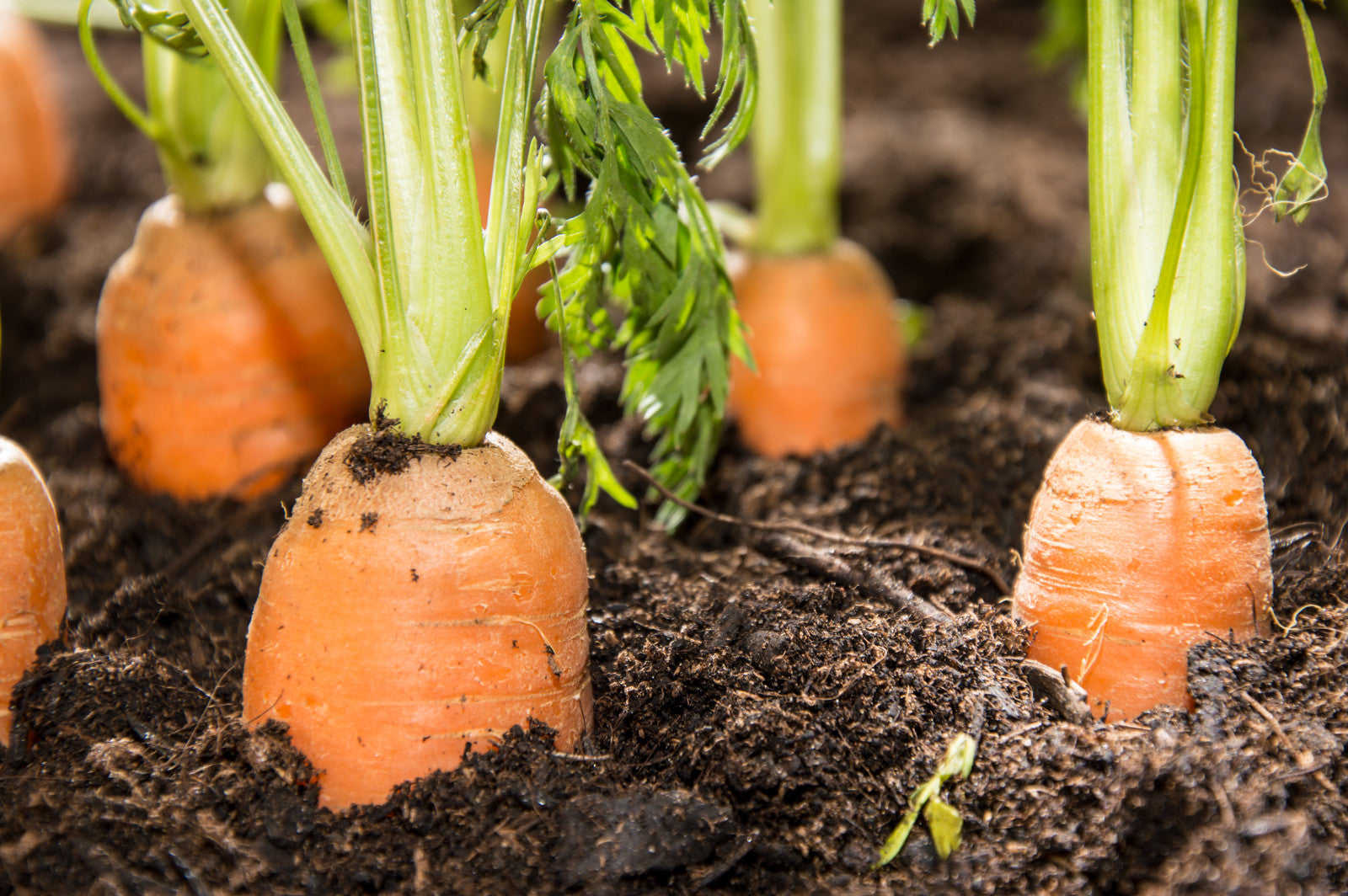
What are Soil-Based Organisms (SBO's)
Soil-based organisms (SBO's) are tiny microbes that live in soil. According to medical research scientist Dr. William C. Bryce, M.D., PhD, soil-based organisms produce and release powerful enzymes that sterilize the soil of putrefactive organisms. Without SBO's, lush plant growth could not take place because the soil would be too contaminated with yeasts, molds, fungi, candida and other harmful organisms that are detrimental to plant growth and reproduction. The enzymes produced by the SBO's solve this problem by helping kill off huge amounts of the harmful elements in the soil.
Many Americans don't realize it, but many forms of SBO's, as well as their enzyme, hormone and nutrient by-products, are unknowingly taken into the human body when organic fruits and vegetables are eaten. This was especially true in the 19th century, when America was basically one large rural farming community. Fresh fruits and vegetables were commonly available and eaten straight from family gardens. Today human ingestion of SBO's and their beneficial by-products is far less common. This is because modern agricultural techniques (including the spraying of powerful pesticides, fungicides and germicides) and heat-based food processing techniques tend to kill off SBO's on fruits and vegetables.
It is difficult for people to get all the necessary SBO's, including probiotic bacteria, from the food they eat today. Supplements really are necessary.
Spore-forming soil-based organisms (SBO's)
The spore-forming bacteria from the soil, such as those in the genus Bacillus, have an advantage for survival when they are taken as a supplement. Whenever the conditions for these bacteria are less than ideal, they go into a dormant state called a spore. They reduce themselves down to a core which contains very resilient copies of their DNA. This core is protected by a tough shell that resists radiation, extremely high or low temperatures, lack of water and many chemicals. They do not need water or food in this state. They can remain viable for extended periods of time. When the conditions are once again good for bacterial growth, the spores can reactivate themselves very quickly and be back in the living vegetative state.
That means that beneficial probiotic species in the genus Bacillus can easily avoid being destroyed by the stomach acid while passing from the mouth to the intestines. The non-spore forming types of bacteria commonly used in probiotics, such as Lactobacillus and Bifidobacterium, are massively killed by stomach acid when ingested by humans. People often take supplements with millions and billions of these bacteria in them, but this is not necessary when taking spore-forming bacteria.
By the way, the bacterial spore (also called an endospore) is not a means of reproduction. It is simply a means for a bacterium to go into a dormant state, stay there until conditions improve, and then live again. With other living entities, such as ferns, spores are a means of reproduction. One fern plant may make hundreds of spores and send them out to grow into new plants.
Un-coded Antigens
Dr. Peter Rothschild, M.D., PhD, has done extensive laboratory research on probiotic bacteria from the soil. His research was reported in the "Critters!" article published by BIO/TECH NEWS. He found that, once ingested, these organisms begin to produce a protein bio-mass in the intestines which the body thinks is an antigen (a foreign substance that should be attacked). The body then produces large quantities of B-lymphocytes, which in turn causes the immune system to make huge quantities of antibodies (substances that attack foreign invaders).
Dr. Rothschild said these antibodies are unique in that they are not programmed by the immune system to attack any specific pathogenic invader. Instead they are formed and held in reserve in the body to be used by the immune system whenever they are needed. If a virus or bacteria comes into the body, the immune system can quickly program the antibodies to attack that specific pathogenic invader.
Dr. Rothschild said, "The beauty of it all is that this huge reservoir of extra antibodies is always on hand for the immune system to utilize, as long as the individual is ingesting the SBO's regularly. Without the SBO's, this reservoir of extra antibodies is completely unavailable. Thus, by ingesting the SBO's regularly, the effectiveness of the human immune system is vastly enhanced. This extra contingent of antibodies is always there to attack infection; therefore, the immune system doesn't have to work anywhere near as hard as it normally would to fight off infection."
Alpha-interferon production
Dr. Rothschild also found that the beneficial SBO's stimulate the body to produce extra alpha-interferon. Alpha-interferon is a protein that is important in the regulation of the immune system response. Having extra alpha-interferon can lead to a very aggressive immune reaction when there is a threat. In addition, Dr. Rothschild found that SBO's stimulate the body's T-cell and T-lymphocyte production.


